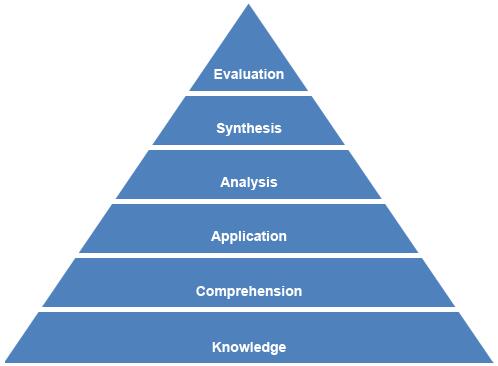Tag: Bloom's Taxonomy
-

Slow Productivity in School, Part 1: The Problem of Pseudo-Productivity
Classical educators can often be found touting the Latin phrase multum, non multa, in favor of various revolutionary proposals to adopt quality over quantity, depth over breadth, much over many things. (See for instance this article on Memoria Press by Andrew Campbell, or Christopher Perron’s lecture on Classical Academic Press.) The phrase comes from a…
-

The Counsels of the Wise, Part 1: Foundations of Christian Prudence
We began this series with a proposal to replace Bloom’s Taxonomy of educational objectives with Aristotle’s five intellectual virtues. While Bloom and his fellow university examiners aimed to create clarity in teaching goals through a common language, their taxonomy of cognitive domain objectives may have done more harm than good. In rejecting the traditional paradigm…
-

Apprenticeship in the Arts, Part 6: The Transcendence and Limitations of Artistry
In this series on apprenticeship in the arts we have laid out a vision for the role of the arts in a fully orbed classical Christian education. We began by situating artistry or craftsmanship within a neo-Aristotelian and distinctly Christian purpose of education: namely, the cultivation of moral, intellectual, and spiritual virtues. Then we explored…
-

Apprenticeship in the Arts, Part 1: Traditions and Divisions
The previous two articles have paved the way both for our discussion of Aristotle’s intellectual virtue of techne, artistry or craftsmanship, as well as the intellectual virtue of phronesis, practical wisdom or prudence. In a strict sense, the analogy between artistry and morality is aside from our central argument, which consists in working out the…
-

Practicing in the Dark or the Day: Well-worn Paths or Bushwalking, Artistry and Moral Virtue Continued
In my last article we explored the analogy between Aristotle’s intellectual virtue of artistry or craftsmanship (Greek: techne) and moral virtue, taking our cue from the Nicomachean Ethics book II. Along the way we discovered the foundation for these two types of excellence in habit development or the neural networks of the brain. Excellence, according…
-

Moral Virtue and the Intellectual Virtue of Artistry or Craftsmanship
It might seem strange after the paradigm delineated above to focus our attention back on intellectual virtues alone, just after arguing for the holistic Christian purpose of education: the cultivation of moral, intellectual and spiritual virtues. But it is impossible to do everything in a single series or book. The cultivation of moral virtues requires…
-

What Bloom’s Left Out: A Comparison with Aristotle’s Intellectual Virtues
In the last three articles in this series, I laid out the good, the bad and the ugly of Bloom’s Taxonomy. After the last two posts it is perhaps worth reaffirming the value of Bloom’s project. While I ultimately believe that Bloom and his colleagues may have done more harm than good, I do affirm…
-

When Bloom’s Gets Ugly: Cutting the Heart out of Education
Bloom’s Taxonomy cuts out the heart of education by cultivating bloated heads and shrivelled chests and leaving out man as maker and doer.
-

Bloom’s Taxonomy and the Importance of Objectives: 3 Blessings of Bloom’s
“Would you tell me, please, which way I ought to go from here?”“That depends a good deal on where you want to get to,” said the Cat.“I don’t much care where–” said Alice.“Then it doesn’t matter which way you go,” said the Cat.“–so long as I get SOMEWHERE,” Alice added as an explanation.“Oh, you’re sure…

